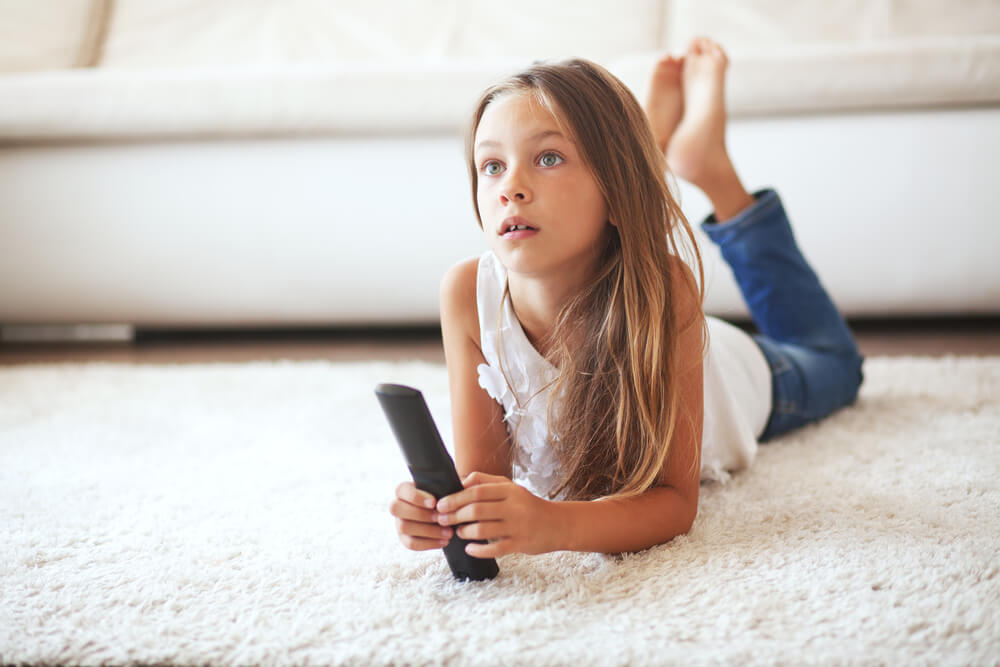Idleness or Rest? Talking About Harm and Benefits of Free Time for Children

“Instead of sitting around doing nothing, do something useful”, “Get off the phone and help me”, “It is better to read than to sit around and do nothing (or wash the dishes, walk the dog etc)”… Do these phrases sound familiar to you? We heard them from our parents and we often broadcast them to our children. Those who do nothing are even condemned by fairy tales and cartoons. However, is idleness really this harmful? If so, why is the concept of “slow living” becoming more widespread among adults, whilst we are trying to speed up children and adolescents as much as possible?
Let’s try to figure out what is the difference between rest, idleness, procrastination, and laziness and what is the importance of free time for a child. Is there even such a concept as a “lazy child”?
Contents:
- Idleness, Laziness and Rest: What is What?
- Can One Get Tired of Idleness?
- How to Organize a “Beneficial Idleness“ for the Child?
- Is Doing Nothing Good or Bad?
Idleness, Laziness and Rest: What is What?

Evgeny Atamanenko/Shatterstock.com
To start off, let’s go over the definitions by using simple and easy-to-understand examples.
Rest is most often related to a change of activity in order to allow the overloaded part of our body to recover. For instance, one stops learning a foreign language and goes to ride a bike, or stops talking with their friends and goes to read a book in silence. A child who is at their desk at school for six hours can rest through noisy and active games at the gym or outdoors.
Idleness is a period of relative rest, which is required for a kind of “reset”. A person relaxes in their most comfortable environment, whilst not straining their brain or muscles, and restoring their strength. Procrastination is a much more complex matter, which can often be found not only in adults, but also in children: we know that something needs to be done, we understand that it is important, however, we don’t do it. Most often, this is an internal protest of the psyche and the body as a whole, thus a good reason to think, what is wrong with what we are avoiding?
Finally, let’s talk about laziness. When someone doesn’t do something because they don’t consider it necessary, they have no motivation or intention to do it. One is therefore ready to give up the desired result, just so they don’t have to make an effort.
Psychologists are often asked: the presence of which of the above in the child’s routine should cause concern?
Full development and self-realization of an individual is impossible without rest or switching between different types of activity. One also cannot effectively restore their system without idleness.
Procrastination and laziness should be handled more carefully. They at least may mean that it is worth looking for its reasons. They could be that the child is too overwhelmed, that their tasks aren’t in line with their abilities, that their energy levels are low, and so on.
Peter (the names of the characters have been altered—the author’s note) is 8 years old, and his mother came to a psychologist with the following question: how not to go crazy when she does the homework together with her son? “It takes four hours for each subject. We go through screaming, tantrums, and bad grades, and we don’t have time for anything. As soon as I go about my business, my son does anything but his homework: looks out the window, texts his friends, plays with the dog”, says the woman. At the same time, the mother does not hide the fact that the same thing happens to her at work: “I put off writing a report until the last minute, and do it 3 hours before the deadline. I don’t understand what the boss wants from me, my colleagues annoy me, my salary is small, and I go there every morning knowing that I hate my job”. The mother and the son both have the same problem: procrastination. It is the reaction of the psyche to activities in which they do not see the point.
What Happens to the Brain During Rest?

Alena Ozerova/Shatterstock.com
Rest leads to the fact that some parts of the brain go into a state of excitation (activity), whilst others enter into a state of inhibition (rest). Idleness makes it possible for the brain to reduce its activity as a whole. Therefore, if after hard sports training, a child reads, surfs social networks, or watches videos or movies, this can be considered as rest, since they are switching from one activity to another.
However, rest whilst being on the phone has got a negative impact. Such rest time also works for the brain, no matter how illogical it may sound.
Can One Rest With a Gadget in Their Hand?
The problem of gadgets, on the one hand, seems to be omnipresent. On the other hand, it appears to be greatly exaggerated. The same doubts have been there in parents in all eras when their children began to actively use new inventions that radically changed the rhythm of their life. Depending on the time, these could have been printed books, cars, television or computers.
This activity puts a serious strain on the brain, on the psyche, and even on the eyes of a person. Therefore, the time dedicated to using gadgets should be limited.
Create a schedule of gadget usage, filter available apps, and content, and set limits with the help of the Kids360 app.
Can One Get Tired of Idleness?

Anatoliy Karlyuk/Shutterstock.com
Many of us have repeatedly experienced that after a long period of “doing nothing” we felt even more tired than after a full day of work. For example, if a person rides the train all day with the same landscapes outside the window, no physical activity, and no book to read, by the end of the day, it seems that not only the body but also their brain becomes numb. Why is this happening?
Our body is designed in such a way that it needs to be alternating between periods of activity and rest. Otherwise, with excessive overloads, there is a feeling of exhaustion, making it more and more difficult for us to force ourselves or our children to engage in tiring activities. However, on other hand, with periods of inactivity that are excessively long, our muscles lose their tone, our brain slowly but surely forgets entire blocks of information, and our speed of data processing and reaction time decrease.
How to determine that a period of rest or idleness is sufficient, but not excessive? There is no single standard and rule, it all depends on the age and the psycho type of the child.
It is important not to forget that a child and even a teenager is not always able to fully assess their mental, physical and emotional state, and explain what they feel and what they want.

Arsenii Palivoda/Shutterstock.com
It is worth thinking about the need for a child to have rest and do nothing for the first time when they become involved in social activities outside the family: they start going to kindergarten, developmental and preparatory classes, or to sports lessons. A busy timetable and a general atmosphere that is very different from the usual life at home would mean that the child’s intellectual activities would need to be followed up by running, jumping and being loud on the street, whereas, after sports training, it would be best to watch cartoons, draw, and do other calm activities.
Kate is already 12 years old, and she complains that she has been waiting for the holidays for the entire academic year, and then she couldn’t force herself to get back to her studies. “It always seems to me that when the weekend or summer comes, I will improve my language skills, learn to swim, and will go out on walks with my friends every day. I’ll get to sleep and won’t have any lessons. However, I then end up just lying in bed with my phone and watching stupid movies. Before I know it, I have to go to school the next day. At this point, I feel terribly tired”, says the girl. The psychologist advised the teenager to put in place a schedule of what she wants to do during the day, week, and month, on her phone, having specified an exact start and end time. For instance, 15 minutes for a walk, 30 minutes for a foreign language, and 1 hour for social networks. This will gradually allow her psyche to plan its activities effectively.
It is important not to forget about the limits of fatigue in children and adolescents. At the age of 6–7 years, the child is physiologically unable to focus their attention on one lesson for more than 15–20 minutes, and up to half an hour in elementary school. Adolescents in middle school are already capable of fully engaging in lessons or sports during a standard academic hour. At the age of 16–18 years, rest is required after 1–1.5 hours, and complete idleness, after 4–5 hours.
How to Organize a “Beneficial Idleness“ for the Child?

Robert Kneschke/Shutterstock.com
Both rest and idleness need to be planned. This is the only way that would allow the child to learn to use their time effectively, starting from an early age.
Parents should start with themselves. If spending your free time watching TV is a habit in your family, you are unlikely to be able to explain to your son or daughter that you should go to the park, ride a bike, ski, or read a book. If your family doesn’t like to travel, the child will have nowhere to get this desire from. The same applies, for instance, to the ability and love to receive guests, going on hikes and movie premieres. Nevertheless, there is also a downside to this matter: many parents are so actively trying to develop their children that they do not leave a second of free time in their schedule. After this, they ask the psychologist in surprise: why doesn’t my child want anything?
If you are thinking about the need for rest and reasonable idleness for your children, whilst wishing to avoid procrastination and laziness, here are two basic rules: lead by your own example and do not put pressure.
Paul will turn 15 soon, and his parents are worried that he quickly gets into various hobbies and interests and later drops them very quickly, too. His parents say: “In our childhood, we were taught that whenever you’ve taken something up, you need to carry on with it. However, his school tells us not to put pressure on the child, and that the love for music or sports cannot be instilled against the child’s will. What shall we do?” During the conversation, it turned out that the father selects the extracurricular activities for the boy: “I had seven children in my family, we didn’t have any opportunities for hobbies or interests. I want my son to have everything that I didn’t have.” As a result, Paul goes to judo and guitar lessons against his will, “so that he is strong and because girls like it,” whilst secretly writing computer games and drawing comic books.
You may enjoy walking for hours, observing nature and taking pictures of birds, however, this does not mean that your daughter will be fond of it, too.
In the same way, as with trying new food, various options of activities should be offered and not pushed upon the child. With this in mind, remember that your child is not a copy of yourselves! We are certainly not talking about copying, but about the ability to fill in one’s day with interesting, useful and not excessively tiring activities, whilst alternating them with mandatory chores.
Is Doing Nothing Good or Bad?

Gladskikh Tatiana/Shutterstock.com
And yet, is it good or bad not to be doing anything? Remember your feelings when you find yourself, for instance, in your countryside home. A good morning, silence, and a cup of coffee. You are sitting with your feet up on a chair. You aren’t rushing anywhere or doing anything. Idleness, you say? Dishes not washed, dinner not cooked, homework not checked. But you’re feeling good, right?
All of us, regardless of our age, social status or psycho type, have to have some time just for ourselves.
Idleness makes it possible to drop, like the weight off our shoulders, the expectations of others, anxiety, attempts to do everything in time and not be late anywhere, allows us to listen to yourselves, and to find what exactly we want, what we feel, how we feel about certain people and events. It allows us to make plans and take a moment to dream.
The picture on the front page: Soloviova Liudmyla/Shutterstock.com
Проверьте электронный ящик



















